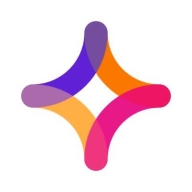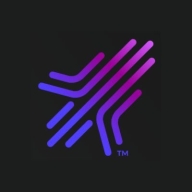

Jitterbit Harmony and Rocket Zena are both valuable solutions in the enterprise integration space. Jitterbit Harmony leads in pricing and customer support, whereas Rocket Zena offers a superior feature set, making it a favored choice for advanced requirements.
Features: Jitterbit Harmony provides extensive customization options, pre-built integrations, and seamless Salesforce connectivity, catering to complex enterprise needs. Rocket Zena excels with advanced automation, scalability, and a user-friendly workflow visualization tool, making it suitable for dynamic integration demands.
Room for Improvement: Jitterbit Harmony could enhance its scalability features and update its interface for more intuitive use. It would also benefit from expanding its automation tools. Rocket Zena can improve its initial deployment complexity, offer more competitive pricing, and streamline its advanced features for simpler configuration.
Ease of Deployment and Customer Service: Jitterbit Harmony's straightforward deployment is bolstered by strong customer support, ensuring fast implementation. Rocket Zena's setup, although efficient, benefits from personalized customer service focused on dedicated assistance and extensive follow-up.
Pricing and ROI: Jitterbit Harmony offers competitive setup costs and flexible pricing plans, appealing to cost-conscious buyers with promising ROI. Rocket Zena requires a higher upfront investment, which is offset by substantial long-term ROI through its advanced features and scalability.
| Product | Market Share (%) |
|---|---|
| Rocket Zena | 2.5% |
| Jitterbit Harmony | 0.3% |
| Other | 97.2% |


| Company Size | Count |
|---|---|
| Small Business | 8 |
| Midsize Enterprise | 3 |
| Large Enterprise | 1 |
| Company Size | Count |
|---|---|
| Small Business | 3 |
| Large Enterprise | 6 |
Jitterbit Harmony offers an advanced integration platform that simplifies data transformation, helps users quickly connect apps, and automates workflows, streamlining complex business processes efficiently.
Designed to meet the high demands of modern businesses, Jitterbit Harmony enables seamless integration across cloud and on-premise environments. By leveraging its powerful tools and user-friendly design, users can accelerate innovation, reduce operational costs, and enhance productivity. It bridges the gap between traditional and emerging technologies, ensuring organizations can adapt quickly to market changes and remain competitive.
What are the key features of Jitterbit Harmony?Jitterbit Harmony finds its application across numerous industries, from enhancing data integration in the healthcare sector to optimizing supply chain logistics in manufacturing. It supports financial institutions by improving transaction processing and facilitates real-time data connectivity in retail environments, making it a versatile choice for diverse industries looking to innovate rapidly.
Rocket Zena offers scheduling and dependency mapping, intuitive interface, and containerized deployment. It simplifies workflow automation, enhancing efficiency across platforms.
Rocket Zena's strengths lie in its scheduling capabilities, graphical interface, and efficient deployment. It supports users in task management with cross-platform scheduling, streamlining repetitive tasks through automation. The web-based client facilitates process visualization and workflow management, while the notification system enhances task handling. Users can manage mainframe, Linux, and Windows environments while integrating with SAP and Oracle, ensuring comprehensive automation and efficient job execution.
What are the key features of Rocket Zena?In industries like finance and manufacturing, Rocket Zena plays a vital role in scheduling batch jobs and automating file transfers. It helps adapt task scheduling to business calendars and integrate with existing platforms, ensuring a smooth workflow that meets business objectives.
We monitor all Workload Automation reviews to prevent fraudulent reviews and keep review quality high. We do not post reviews by company employees or direct competitors. We validate each review for authenticity via cross-reference with LinkedIn, and personal follow-up with the reviewer when necessary.